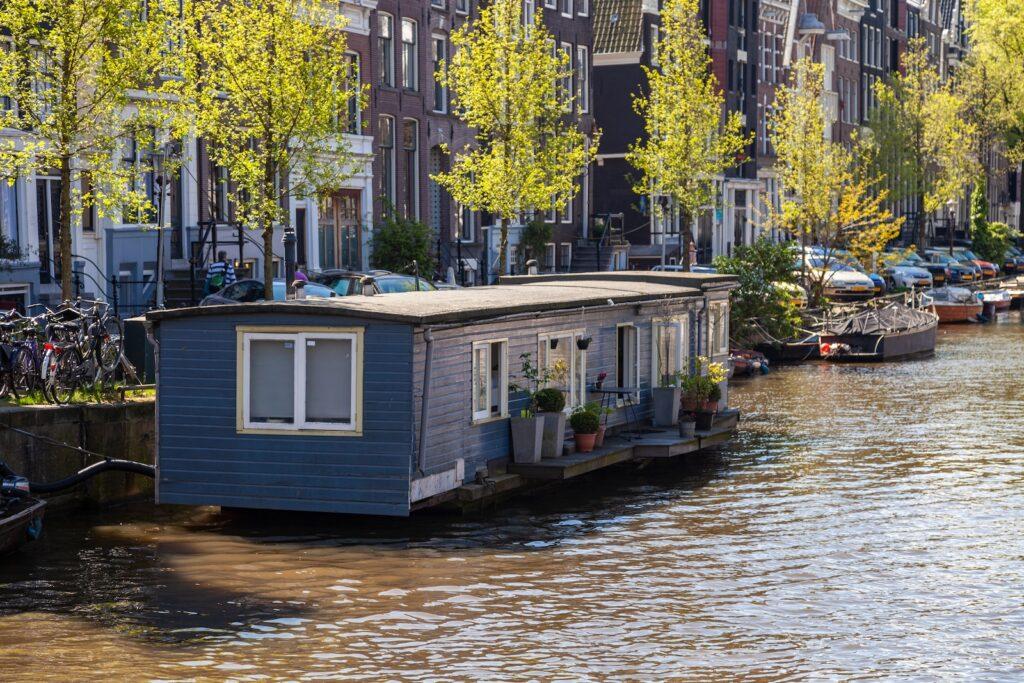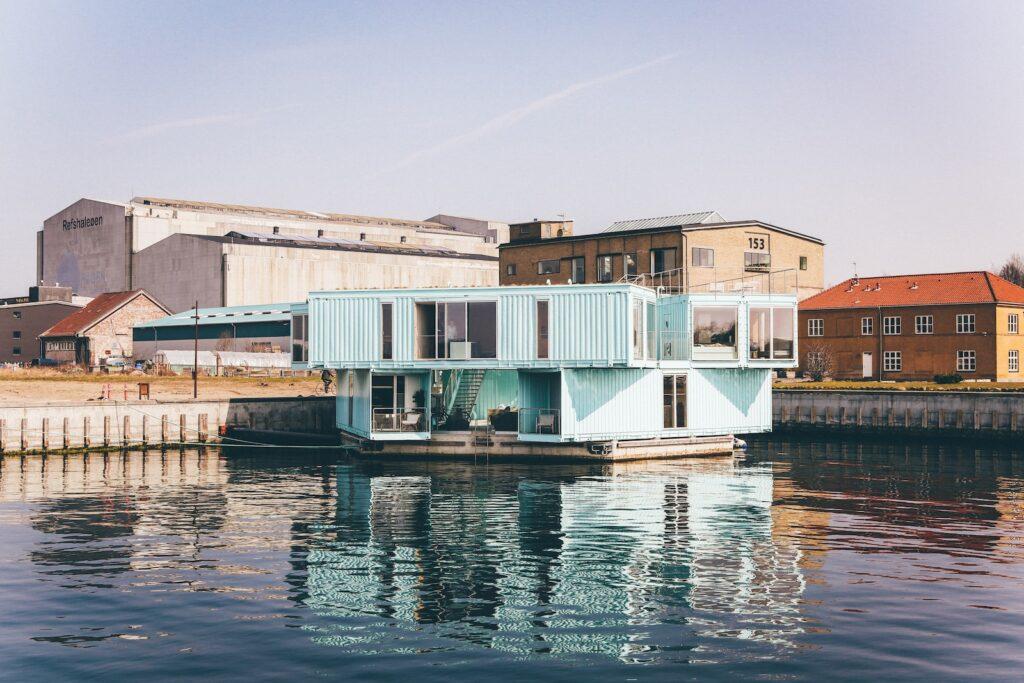Best Houseboat Generator
A houseboat generator is an essential item for any houseboat owner. It provides a source of power for lights, cooking, entertainment, and other appliances. A generator is also necessary for providing power to the boat’s propulsion system, allowing the boat to move around in areas where shore power is not available. With so many houseboat generators on the market, it can be difficult to choose the best one for your needs.
This article will provide information on the different types of houseboat generators and the features to consider when selecting the best one for your houseboat.
Best Houseboat Generator
The best houseboat generator will depend on your specific needs. Consider the size of your houseboat, how much power you need, and your budget before making a deciion. A diesel generator is usually the most reliable and will last the longest, but is also the most expensive.
Yamaha EF6300iSDE: This generator is a popular choice for houseboats due to its reliable performance and fuel efficiency. With a rated capacity of 5500 watts and a maximum capacity of 6300 watts, it can power multiple appliances and electronics on your houseboat. Its quiet operation and electric start feature make it convenient and user-friendly.
Honda EU3000iS: Known for its durability and long-lasting performance, this generator is an excellent option for houseboats. With a rated capacity of 2800 watts and a maximum capacity of 3000 watts, it can handle the power demands of essential onboard systems. Its compact design and low noise level make it suitable for smaller houseboats or those with limited storage space.
Westinghouse iGen4500: This inverter generator is highly regarded for its clean and stable power output, making it ideal for sensitive electronic devices on your houseboat. It has a rated capacity of 3700 watts and a maximum capacity of 4500 watts, providing ample power for various appliances. With its lightweight and compact design, it is easy to transport and store on your houseboat.
Champion Power Equipment 100263: Designed with versatility in mind, this dual fuel generator offers the flexibility of using either gasoline or propane to power your houseboat. With a rated capacity of 3400 watts and a maximum capacity of 3800 watts, it provides reliable power for your onboard needs. The unit is equipped with a convenient electric start and a noise level that is well-suited for quiet boating environments.
Firman H08051: This powerful generator offers a high wattage capacity, making it suitable for larger houseboats with greater power demands. With a rated capacity of 7000 watts and a maximum capacity of 8000 watts, it can provide ample power for multiple appliances and systems. Its durable construction and reliable performance make it a dependable choice for long trips or extended stays on your houseboat.
A gasoline generator can be cheaper, but will require more frequent maintenance. If you have limited space and need a quiet generator, then a propane or natural gas generator is ideal. Make sure to compare the features and prices of various generators to find the one that best suits your needs.

When choosing a houseboat generator, safety is also an important factor to consider. Read reviews of the generator to make sure it meets safety standards and is suitable for use on a houseboat. Look for a generator that has an automatic shut-off feature, in case of power overloads and surges. Finally, make sure to check the warranty and service options provided by the manufacturer, to ensure you can get the support you need if the generator needs repairs or maintenance.
Types of Houseboat Generators
Houseboat generators come in a variety of types and sizes to suit different needs. The most common types are gas and diesel generators, which are generally the most economical and reliable options for powering a houseboat.
- Portable Inverter Generators: These generators are compact, lightweight, and offer clean and stable power output. They are known for their fuel efficiency, quiet operation, and suitability for sensitive electronic devices.
- Conventional Portable Generators: These generators are versatile and available in a wide range of power outputs. They are generally more affordable than inverter generators but may produce slightly less stable power.
- Diesel Generators: Diesel generators are known for their durability and fuel efficiency. They are often preferred for their longer runtime and ability to handle heavy loads.
- Propane Generators: Propane generators are an alternative fuel option for houseboats. They are typically quieter and produce cleaner emissions compared to gasoline or diesel generators.
- Solar Power Systems: Solar power systems utilize solar panels to generate electricity. They are environmentally friendly and can be a cost-effective long-term solution, especially in areas with ample sunlight.
- Wind Generators: Wind generators harness wind energy to generate electricity. They can be a renewable energy option for houseboats located in areas with consistent wind patterns.
- Hybrid Generators: Hybrid generators combine multiple power sources, such as solar, wind, and traditional fuel, to provide a flexible and efficient power solution. They offer the advantage of utilizing renewable energy sources while still having the option to use conventional fuels when needed.
- Power Inverters: Power inverters convert DC power from the boat’s battery into AC power. They are commonly used to power smaller electrical devices or appliances onboard the houseboat.
Other types such as wind and solar generators are becoming increasingly popular, as they are more efficient and can help reduce the environmental impact of a houseboat. Hybrid generators, which combine gas and diesel, are also available for those who need a hybrid power solution. If You really need backup power think of portable generator for boats.
Diesel Generators
Diesel generators are typically the most powerful and reliable type of houseboat generator. They are also the most expensive and require the most maintenance. They are usually the best choice for long-term use or for those who are away from shore power for extended periods of time.
Gasoline Generators
Gasoline generators are the most common type of houseboat generator. They are usually the least expensive and require the least amount of maintenance. They are also lighter and easier to install than diesel generators. They are not as powerful or efficient as diesel generators.
Inverter Generators
Inverter generators are a relatively new type of houseboat generator. They are smaller, lighter, and quieter than other types of generators. They also have a higher power output and more efficient fuel consumption than gasoline generators. However, they are also more expensive and require more maintenance than other types of generators.
What Size of Generator do I Need for HouseBoat

The size of generator you need for your houseboat will depend on the amount of power you need for your appliances, devices, and other electrical items. To determine the size of the generator you need, calculate the total wattage of all items you will be powering simultaneously, then choose a generator with a wattage rating that is higher than your total.
It is important to choose the right size of generator for your houseboat to ensure it can provide the power you need without being too large or expensive. If you are unsure of the wattage of any of your electrical items, you may need to check with the manufacturer. You should consider any possible future power needs when choosing a generator size.
Features to Consider When Choosing a Houseboat Generator
When choosing a houseboat generator, there are several features to consider. You need to consider the size of the generator and whether it will fit within the space you have available. You should also consider the power output of the generator, as this will determine whether it can meet your needs. It is important to consider the type of fuel the generator uses, as well as its noise output, as these will affect your comfort level when using the generator.
- Power Output: Determine the power requirements of your houseboat, including the appliances, electronics, and systems you need to run. Choose a generator with sufficient power output to meet your needs.
- Fuel Type: Consider the availability and accessibility of fuel sources. Common options include gasoline, diesel, propane, and alternative fuels. Choose a generator that uses a fuel type suitable for your preferences and convenience.
- Runtime and Fuel Efficiency: Look for a generator that offers a good runtime on a single tank of fuel. Fuel efficiency is important for long trips or extended stays on the water, ensuring that you have enough power without constantly refueling.
- Noise Level: Consider the noise level of the generator, especially if you plan to use it during quiet moments or in marinas with noise restrictions. Look for generators with noise reduction features or models specifically designed for quiet operation.
- Size and Weight: Take into account the available space on your houseboat and the weight-bearing capacity. Choose a generator that fits within the available space and is suitable for the weight restrictions of your vessel.
- Portability: If you plan to use the generator for other purposes or need to move it around, consider its portability. Look for features such as handles, wheels, or compact designs that make transportation and storage easier.
- Safety Features: Ensure that the generator has built-in safety features such as overload protection, low oil shutdown, and circuit breakers. These features help protect both the generator and your houseboat from potential damage.
- Ease of Use and Maintenance: Look for generators that are easy to operate, with user-friendly controls and clear instructions. Consider maintenance requirements, such as oil changes and filter replacements, and choose a generator that is easy to maintain.
You might also consider the cost of the generator and whether it fits within your budget. By taking these factors into consideration, you will be able to select the best houseboat generator for your needs.
Size
The size of the generator is an important factor to consider. A larger generator will produce more power, but it will also take up more space and be heavier. If you are limited on space or want to keep the weight of the generator to a minimum, then a smaller generator may be a better choice.
Power Output
The power output of a generator is measured in watts. It is important to select a generator that can provide enough power for all of your electrical devices and appliances. If you are selecting a generator for long-term use, then it is best to choose a generator with a higher wattage rating to ensure you have enough power.
Fuel Type
The type of fuel used to power the generator is also an important factor to consider. Gasoline, diesel, and inverter generators all have their own advantages and disadvantages. Depending on the type of fuel available and your budget, you can select the best type of generator for your needs.
Noise Level
The noise level of a generator is also an important factor to consider. Generators can be quite loud, which can be disruptive to those in the surrounding area. Select a generator that is as quiet as possible while still providing the power you need.
Maintenance Requirements
Maintenance is an important consideration when selecting a houseboat generator. All generators require regular maintenance, including changing the oil, checking the battery, and cleaning the air filter. Make sure you select a generator that does not require too much maintenance and that you can easily access the parts for maintenance.
Houseboat Generator Capacity

The capacity of a houseboat generator will depend on the size and power rating of the generator itself. Generally speaking, a typical houseboat generator will be rated between 5KW and 15KW, with 5KW being sufficient to power basic onboard systems such as lighting, refrigeration, and some small appliances. A 15KW generator will provide more power and should be able to handle a heating system, air conditioning, or larger appliances.
The size of the generator will also depend on the size of the houseboat, as larger boats will require more power to run onboard systems. Other factors such as the number of appliances, type of fuel, and the frequency and duration of use should also be taken into consideration when selecting the appropriate generator size for a houseboat. Houseboat owners should factor in the cost of fuel, maintenance, and other associated expenses when selecting a generator that meets their power needs.
Cost of Houseboat Generators
The cost of a houseboat generator is another important factor to consider. The cost of a generator can vary significantly depending on its size, power output, fuel type, and other features. An inverter generator can be more expensive than a diesel or gasoline generator, but it will usually have a higher power output and more efficient fuel consumption. It is important to compare the cost of different types of generators to ensure you are getting the best value for your money.
The cost of a houseboat generator will depend on the size, type and features of the generator you are looking for. Generally speaking, houseboat generators range in price from a few hundred dollars to several thousand dollars. The cost of installation and any necessary modifications to the boat itself can also add to the total cost.
FAQs
What size of generator do I need for my houseboat?
The size of the generator you need depends on your power requirements. Assess the appliances, electronics, and systems you plan to run on your houseboat and calculate their total power consumption.
Can I use a regular portable generator on my houseboat?
While it is possible to use a regular portable generator on a houseboat, it may not be the most convenient option. Houseboat generators are specifically designed for marine use, taking into account factors like waterproofing, vibration resistance, and compactness.
Can I run my houseboat generator all the time?
It is not recommended to run your houseboat generator continuously. Generators have recommended run times and maintenance intervals that should be followed to ensure optimal performance and longevity. Running a generator excessively without proper breaks and maintenance can lead to increased wear and potential issues.
Conclusion
When selecting the best houseboat generator for your needs, there are several factors to consider. The type of generator, size, power output, fuel type, noise level, and maintenance requirements should all be taken into account. With the right information, you can select the best houseboat generator for your needs.
